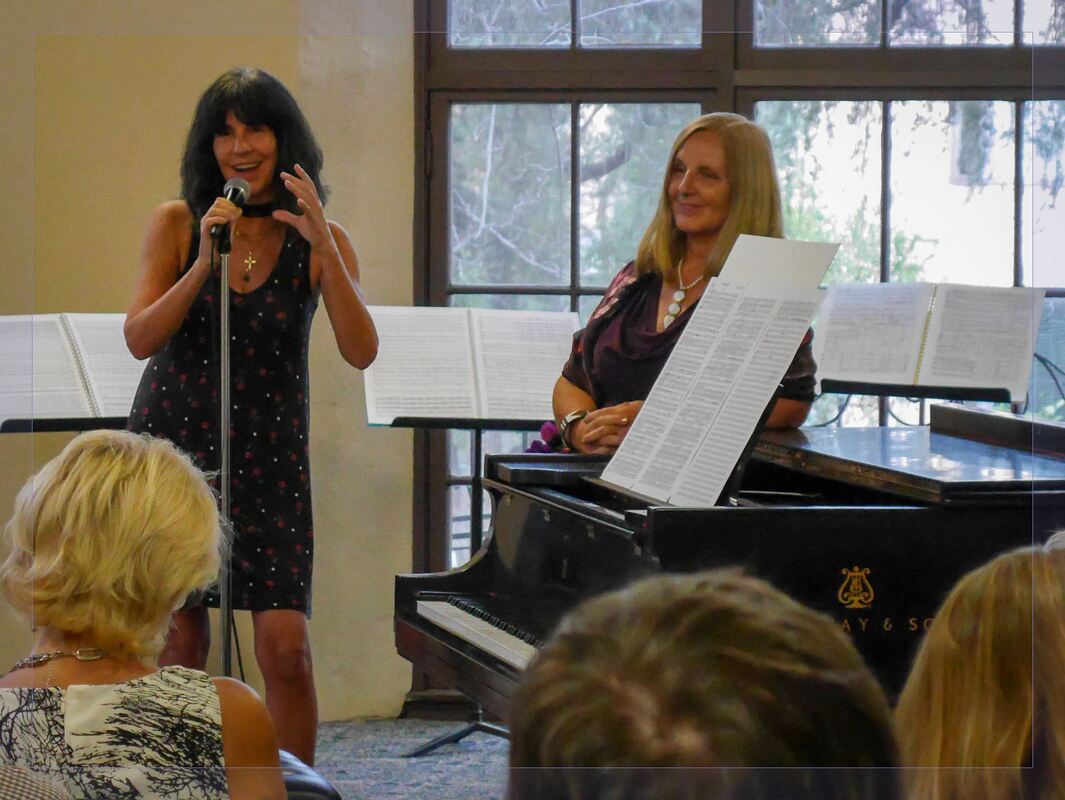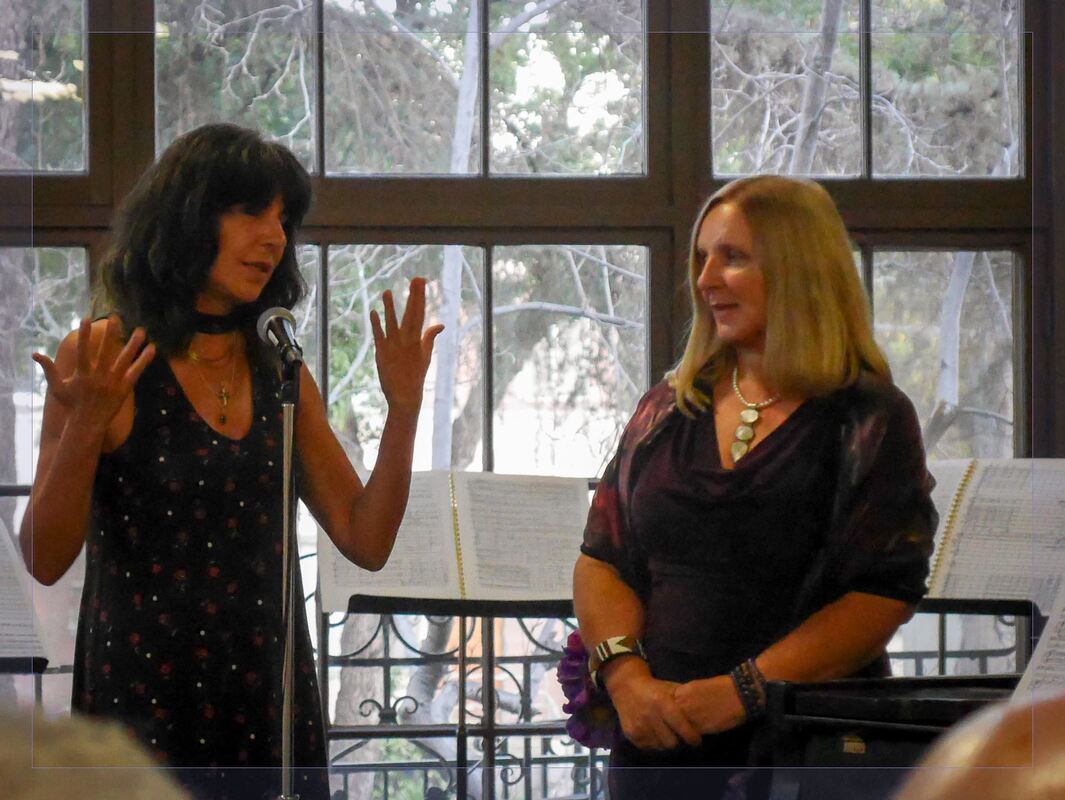Odwrócony Dom and Odwrócony Dom II by Hanna Kulenty-Majoor
|
Moonrise Press presents its first novel in Polish, written by composer Hanna Kulenty-Majoor and published in the U.S. Available now from lulu.com: Part I, 234 pages, ISBN 978-1-945938-12-2 (paperback), $23.00 and Part II, 352 pages, ISBN 978-1-945938-6-10 (paperback), $28.00.
Hanna Kulenty, a Polish-Dutch composer, is the author of more than a hundred compositions (solo, chamber music, symphonies, opera, theater and film). Kulenty's first book "Odwrocony Dom" /"The Upside-Down House" consists of two parts and this is the first part of the novel. Initially, it was an attempt to quickly record a collection of strange dreams and visions. She added facts from her life, philosophical thoughts and fantasies. The composer wrote the following about her book: "Time and its dimensions, time squared, time cubed" ... is not only my motto in music, but also in literature. In music I do not try to stop time, but only to "slow down" the flow of time and to give the listener a sense of its other dimensions. Similarly, in the literature I try to do the same. My first book "Inverted House" consists of two parts: the first part covers the years 2005 - 2008 and the second part is set in the period of a few months of my life in 2015. I started writing this novel around 2012. Initially, it was an attempt to quickly register a collection of my weird dreams and visions. Here, I will add that the dream and the awakened state are inseparable in the novel, and influence its form. It all depends on how we look at it... That is why the title is "Inverted House" - "Odwrocony Dom" It is "inverted" or reflected in the mirror - as in the Magritte image. What I have done so far only in music, I began to transpose into the language of literature. Transposition - this is a good term because I actually wrote this book a bit like a music work. "I show" different scenes in it (let's call it conventionally, "scenes") that recur many times. Every time I get the camera closer to the image (so to speak), showing more and more details. In my music, I use obsessive leitmotives, which evolve into each other in their exterior and interior outlines. I do the same in a book. I am animating and extending "frozen movie images" which are a clear record of my dreams and visions; then I provide them with longer narratives. I take these scenes under the "magnifying glass" not only in my imagination, but as if under the microscope, so you are an eyewitness! In music, I write down what I hear, see, and feel and I have had some practice in doing it. In literature, I write down what I hear, see, and feel with a little less (true) practice. It is, what it is... You have to start somewhere, from something. I write down how time flies, literally, with all the commas and ellipses, without editing, as soon as possible, so as not to forget something, or miss an important detail." |
About the Author, Hanna Kulenty-Majoor
 Maja Trochimczyk and Hanna Kulenty-Majoor present the "Odwrocony Dom" in South Pasadena, California, September 30, 2017.
Maja Trochimczyk and Hanna Kulenty-Majoor present the "Odwrocony Dom" in South Pasadena, California, September 30, 2017.
Hanna Kulenty-Majoor, a Polish-Dutch composer, has been working as a freelance writer since 1985, pursuing numerous commissions from major soloists, ensembles and orchestras. An author of more than a hundred compositions - from solo works, through chamber music, symphony, opera, to theater and film - she has created a series of distinctive musical styles, starting from a "polyphony of arcs" technique (developed in the Masters' thesis), then the technique of "trance in European music" (most notably used in the opera "Mother of Black-Winged Dreams" and the technique of "polyphony of space-time" (developed in the doctoral dissertation and used in major symphonic works and operas).
Her music is recognizable almost from the first note, and sustains listeners interest through its tension, unexpected twists and turns of superimposed layers of music and emotion to last note. Her music now is referred to as "surrealist music" (or "musique surrealistique" - everything sounds better in French!). Her works have been performed on all continents by such ensembles as the Kronos and Arditti String Quartets, ereprijs of the Netherlands, National Philharmonic Orchestra in Warsaw, Poland, and National Radio Symphony Orchestra in Katowice. Hanna Kulenty-Majoor has taught at major music institutions in the USA, Canada, Great Britain, Denmark, Netherlands, Germany, Spain, Lithuania, Poland. She also participated in many juries of music competitions. Currently, she serves as professor of composition at the Music Academy in Bydgoszcz, Poland. She studied composition under the direction of W. Kotoński at the Music Academy in Warsaw and Louis Andriessen at the Royal Conservatory in The Hague. In 1990 she was a guest composer of the Deutscher Akademischer Austauschdienst (daad) in Berlin. Kulenty-Majoor is a recipient of a number of important awards, of which the most valuable is the first place in the 50th International Tribune of UNESCO Composers and the Mozart Medal of the UNESCO International Music Council for the First Concerto for Trumpet and Orchestra (2003). She recently received a lifetime achievement award from the Polish Composers' Union.
Her music is recognizable almost from the first note, and sustains listeners interest through its tension, unexpected twists and turns of superimposed layers of music and emotion to last note. Her music now is referred to as "surrealist music" (or "musique surrealistique" - everything sounds better in French!). Her works have been performed on all continents by such ensembles as the Kronos and Arditti String Quartets, ereprijs of the Netherlands, National Philharmonic Orchestra in Warsaw, Poland, and National Radio Symphony Orchestra in Katowice. Hanna Kulenty-Majoor has taught at major music institutions in the USA, Canada, Great Britain, Denmark, Netherlands, Germany, Spain, Lithuania, Poland. She also participated in many juries of music competitions. Currently, she serves as professor of composition at the Music Academy in Bydgoszcz, Poland. She studied composition under the direction of W. Kotoński at the Music Academy in Warsaw and Louis Andriessen at the Royal Conservatory in The Hague. In 1990 she was a guest composer of the Deutscher Akademischer Austauschdienst (daad) in Berlin. Kulenty-Majoor is a recipient of a number of important awards, of which the most valuable is the first place in the 50th International Tribune of UNESCO Composers and the Mozart Medal of the UNESCO International Music Council for the First Concerto for Trumpet and Orchestra (2003). She recently received a lifetime achievement award from the Polish Composers' Union.




